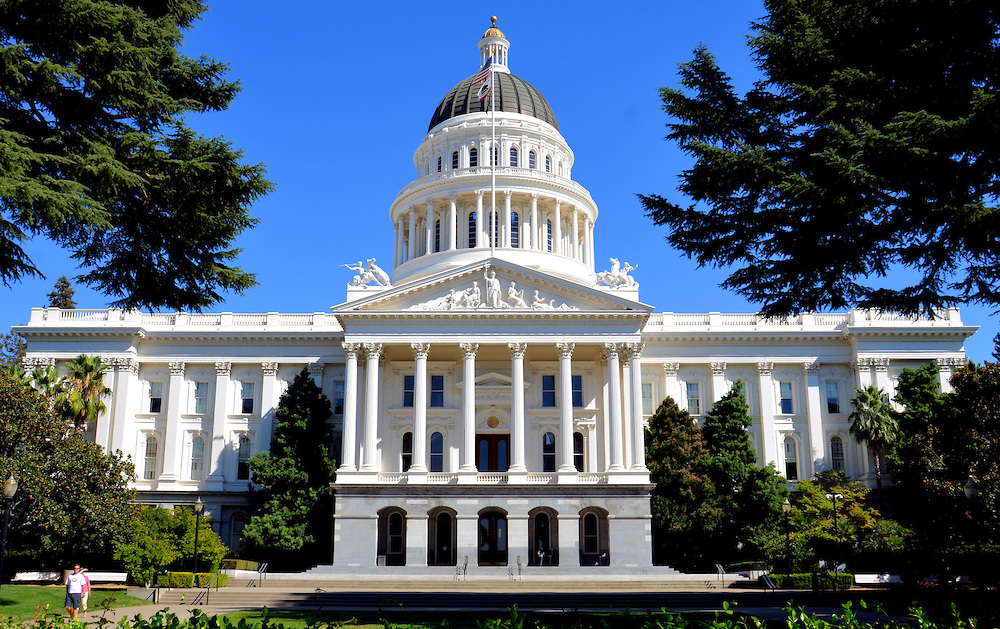Republicans Split over Repealing New Fuel-Tax Hike
Key Elements of Traditional GOP Vow to Spend Millions Fighting

Starting this week, you’ll spend a couple extra bucks to fill up your gas tank — a spurt of inflation that some Republicans hope will power their party’s comeback in California.
The first installment on a massive $52 billion spending bill, passed in Sacramento last spring, came due on November 1, as the state imposed at the pump a 12-cents-a-gallon increase in the gasoline excise tax.
As it did, a coalition of conservatives launched a referendum campaign to repeal the tax, along with the rest of Senate Bill 1. The measure authorizes a decade’s worth of higher transportation taxes and fees, not only on gas but also on vehicle registrations and diesel fuel.
“With the momentum we’ve gathered over the past six months, our grassroots effort to repeal the gas tax is kicking into high gear,” said Carl DeMaio, a San Diego radio yakker and reformed politician who’s leading the charge for the Reform California campaign.
“When the gas tax hits Californians,” he added, “the issue goes from the theoretical to the real, and our grassroots coalition powering the real initiative will only continue to grow.”
This being the Republican Party in the Era of Trump, however, internecine complications already are ensuing.
The 43-year-old DeMaio — the first openly gay local official in San Diego history — served on City Council from 2008-2012, but later lost close races, both for mayor and for Congress. The latter campaign was marked by rancorous sexual harassment charges from former aides and allies.
In his latest incarnation, DeMaio hosts a Limbaugh-knockoff program on drive-time AM radio. Consistent with the role of right-wing media guerilla, he’s embraced the gas-tax repeal as a cultural as much as a purely political issue, casting it as a cause that cuts across partisan lines and could boost the GOP, as did the iconic Proposition 13 property-tax initiative in the 1970s.
A host of elected and institutional Republicans have rushed to support the repeal effort, which needs 585,407 valid petition signatures to make the 2018 ballot. Other key elements of the traditional GOP alliance already are vowing to spend millions to defeat the repeal plan, however.
- GOP state chair Jim Brulte is all-in on the measure, because: Why not? At a time of Democratic hegemony in California, Republican registration continues a drip-drip-drip decline — party voters now represent just 26 percent of the state’s electorate, barely above decline-to-state independents.
- Republican House Majority Leader Kevin McCarthy of Bakersfield, along with most of California’s 13 other Republican members, also have signed on; at the very least, having the gas-tax repeal on next year’s ballot might boost Republican turnout in a midterm election when national Democrats are heavily targeting nine GOP incumbents in the state.
- A laundry list of large, and historically Republican, business organizations and interests backed passage of SB 1, however, because of the promise of an improved state transportation system that would benefit them financially. This group, organized as Fix Our Roads, has warned the gas-tax repeal crowd that they’re prepared to spend tens of millions of dollars opposing the bid to gut the gas-tax infrastructure program.
“If this measure qualifies for the ballot, there will certainly be a $30- to $40-million-dollar campaign against it,” Rob Stutzman, a Sacramento political consultant who advises the business group, which includes the state Chamber of Commerce, said last week. “Gas-tax repeals will actually work against Republicans at the ballot next November.”
Coarsening the discourse. Adding to the intraparty conflicts, there actually are two proposed gas-tax repeal initiatives being circulated. The second comes from Orange County Republican Assemblymember Travis Allen, who’s promoting his own version while running for governor.
As reported by the state politics website CALmatters, Allen last week did a rip job on Fix Our Roads worthy of The Donald himself, labeling an assortment of age-old Republican interest groups as “special interest thugs.”
So there’s that.



